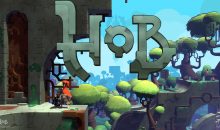Legend RPG: Who is it for?
Legend, a new d20 table-top RPG by Rule of Cool, sets out to create a more modular 3rd Edition D&D experience with smoother multiclassing, increased versatility, and more “cinematic” gameplay. Legend will soon be adopting a “pay what you want” campaign, but in the meantime the game is freshly free to download! I had the chance to look over the game, and I found a game with a lot of possibility, but with a troubling unanswered question: who is this game for?
Fun Multiclassing
Arguably, the main goal of 3rd Edition was to create a fantasy world simulator where everything was built out of the same building blocks called “levels”. A level 9 fighter should be the same “power” as a level 9 wizard. Unfortunately, anyone who played any variant of 3rd Edition D&D found that this wasn’t the case. (The 9th level fighter would politely sit and wait while the wizard consulted the gods and shaped reality at a whim.)
Like an alternate reality 3rd Edition, Legend attempts a different approach to multiclassing called “tracks”. Each class is comprised of three “tracks” of abilities that span across all 20 levels a character may obtain. For example, the barbarian contains the Path of War track full of iconic offensive powers like rage, the Path of Destruction track full of frightening melee abilities like cleave, and the Path of the Ancestors track that contains utility powers that shrug off mental effects and regenerate health. They all combine to create a fleshed out character with choices within each track for customization.
To multiclass your barbarian, you’d swap out one of these three 20-level tracks in its entirety for one of another class’s tracks. You could, for example, trade out the entire Path of Destruction track and all the powers it gives in exchange for a rogue’s Assassin track that grants sneak attack. Each spellcasting class has a track that provides spells, so turning your rogue into an arcane trickster is just a matter of swapping in a spellcasting track. All this is done without adjusting your base attack bonus, save progression, or hit points as determined by your original class. All of this swapping doesn’t touch the character’s hit points, base attack bonus, and saves as determined by their core class.
This does succeed in creating a much more predictable multiclassing system, where the players swap features without screwing over their own stat progression. I’m still skeptical as to whether or not it’s more balanced, but it certainly will cut down on players crafting a character that can’t do anything.
Rearranged Complexity
Legend does offer a good alternative to 3rd Edition’s character creation, but it seems to spin its tires in nearly every other area. The short pitch on Legend uses the words “cinematic” and “smoother” gameplay, but very little here is new. It does a good job of standardizing effects into key words and offering a few fun ways to customize your character (creating your own magic weapons and armor out of keywords, for example), but the actual experience of the game seems to be identical to any other 3rd Edition D&D game you already have on your bookshelf. You will be looking up plenty of conditions, you’ll be combing through the spell chapter for each individual spell description, you’ll be counting 5′ squares on a battlemat, you’ll be applying the templates to characters to give them special abilities, you’ll be turning your PCs into Christmas trees of (customized) magic items, etc.
It feels like 3rd Edition was jostled around. At best each subsystem has the same complexity but the wording is different, at worst the subsystems have extra cogs taped on. Extra derived attack and defense stats seem like over kill, the target numbers for Diplomacy, Awareness, etc. seem unnecessary.
There is one major exception here: the non-combat encounters need to be examined closer. They combine skill checks to acquire tokens that are spent or blind-bid to accomplish things like interrogations, investigations, and negotiations. It’s intriguing, but I don’t want to commit to an opinion until seeing it in action. It looks very, very interesting.
Who is Legend For?
This is the question that I can’t answer. Legend is a clever game! The track based multiclassing, the customization of equipment, the fun structure for non-combat encounters all make me interested enough to pick the game up for a one-shot. But I feel like that’s just because I’m a guy whose primary hobby is reading rule books, that I’m the odd exception.
Is this a game for 3rd Edition players? Honestly, for all of the trouble you’d go through to learn a new rules system, Legend doesn’t appear to offer anything that 3.5 or Pathfinder wouldn’t give you. Is this for people that don’t like 3rd Edition? Certainly not, Legend revels in what 3rd Edition does. Not even the price tag is a selling point, since 3.5 and Pathfinder are readily available online for free.
The only target audiences I can imagine for this game are groups that play 3rd Edition habitually, want something new, but aren’t interested in jumping in wholeheartedly into a completely alien game. So, instead, they’ll pick up Legend, a rearranged and new-ish feeling game that still hits the familiar highs and lows of 3rd. (And, honestly, to those people I would suggest sucking it up and picking up an entirely new game.)
Legend is worth looking over for the fun innovations it brings to a few subsystems. I doubt you’ll be compelled to play it, but you should still go download it, give it a look through, and cherry pick the fun stuff you see to inspire you in your own game.






